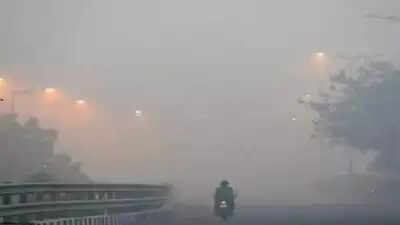Gujranwala has once again made headlines for the wrong reasons, it has recorded Pakistan’s highest Air Quality Index (AQI) at a dangerous level of 762, officially ranking it as the most polluted city in the country. Lahore followed with an AQI of 339, while Karachi reported 206, both falling into the unhealthy range for residents.
The heavy smog covering Gujranwala and other cities has drastically reduced visibility and created serious health risks.
Doctors and environmental experts have warned citizens to take precautions, including wearing masks, using air purifiers where possible, and avoiding outdoor activities to prevent respiratory and eye problems. Schools, commuters and outdoor workers have been particularly affected by the poor air quality.
According to local authorities, the main reasons behind the worsening pollution include smoke from factories, vehicle emissions and weather conditions that trap pollutants close to the ground.
The combination of industrial waste, crop residue burning, and cold temperatures has turned the air thick and harmful.
In response, the Punjab government has announced strict measures to control the situation. Actions are being taken against industries and vehicles that violate environmental laws. Officials have also started planning new anti-smog initiatives, including the use of anti-smog guns in the most affected areas.
Environmental experts emphasize that long-term solutions such as cleaner energy use, better waste management, and strict emission control are essential to protect public health and restore clean air across Punjab.
The situation serves as a reminder that air pollution remains one of Pakistan’s biggest environmental challenges.


